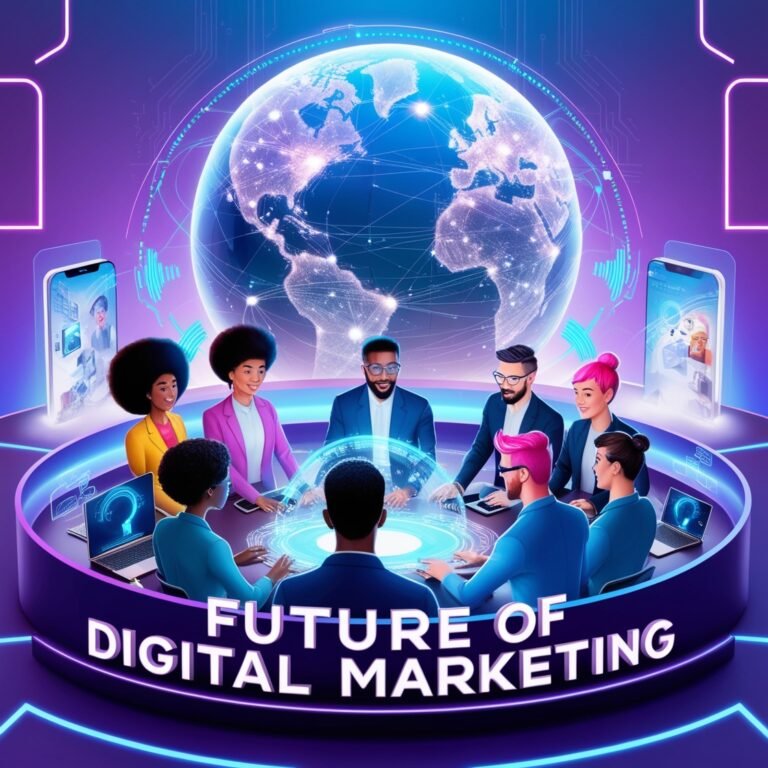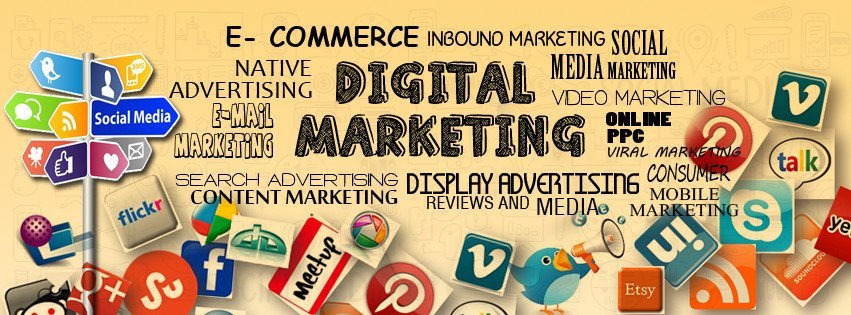Key Emerging Trends
1. Personalization at Scale: With data privacy regulations, the focus on personalization will be more about behaviour patterns and less about identifiers. In Future Of Digital marketing Contextual targeting and first-party data will become very essential as business transitions to a more value-driven, consent-based model of data collection.
2. Voice and Visual Search Optimization With voice-activated devices like Alexa and Google Assistant, all set to take over the world of content and image search, optimizing content in alternative non-text formats will be more important. With voice-friendly key words and an image-based search strategy at the forefront, SEO will dominate in Future Of Digital Marketing.
3. Short Form and Vertical Video Content: TikTok and Instagram Reels have proven that short-form videos generate exceptional engagement In Future Of Digital marketing. The case for vertical videos will grow, and brands will have to make more authentic platform-native content in order to have a say in this new commercial landscape.
4. Sustainable and Purpose-Driven Marketing: Younger consumers care about sustainability and the positive social impact a brand has, and thus, businesses will be called to operate from these foundations to stay competitive. Purpose-driven marketing will become the most important competitive advantage In Future Of Digital Marketing.
Technology Advance – Artificial Intelligence / Machine Learning Impact:
1. Advanced Predictive Analytics: The Future Of Digital Marketing You Have to understanding of consumer behavior will be much more advanced with AI, and insights into campaign targeting and ROI are likely to get impacted. The brands would be able to anticipate customer needs better through predictive models, making their content proactive and highly relevant.
2. Chatbots and Conversational AI: With the advancement of AI, the chatbots will be much more natural and personalised, able to provide flawless and on-demand customer support. This can best be applied in e-commerce where chatbots can guide a user through the buying journey and can suggest items while providing assistance instantly.
3. Content Generation and Curation: The more powerful machine learning model such as GPT-4 can now generate appropriate content at scale-from ad copy to blog articles. Such a thing will make the make on the cner hassle-fretent production front, meaning always quality material without overstressing their human resources.
4.Hyper-Targeted Personalization with AI-Driven Product recommendations : A hyper-personalised user experience comes through data analysis from previous interaction and behaviour streamlines cross-sell and upsell opportunities.

Shift in Consumer Behavior and Preferences:
1. Customer, Data Privacy: Shifted by Concerns In recent times, data privacy concerns have shaped the very face of consumer behaviour. Many customers now expect to be treated with certain transparency regarding how their data will be used and may disengage from those brands in case they find a lack of respect for it.
2. Instant Gratification: In Future Of Digital Marketing Fast is in Demand People want fast answers and quick fixes. Q-commerce or quicker commerce is changing the game with rapid solution delivery, similar to same-day delivery, seen mainly in urban centres.
3. Growing preference for community and interactive experiences: Consumers are constantly drifting towards brands which create a feeling of community through live streaming, brand-led social groups, and virtual events as ways to interact with.
4. Loyalty Driven by Experience, Not Just Product : Users today tend to remain loyal to the experience brand they are buying as opposed to being product loyal. Positive and memorable interaction at each touch point is needed to build loyalty.

Counter Strategies that Businesses can Utilise:
1. Investing in First Party Data and Contextual Marketing:In Future Of Digital Marketing Adapt to effective use of privacy regulations by gathering first-party data through interactive contents like quizzes and polls, and making investments into CRM tools, which will enable them to handle such data and utilise it for contextual marketing.
2. Omnichannel Approach: Link up different channels and touchpoints in order to provide a nimble experience that bridges the online and offline channels. Brands can easily create loyalty with their target consumers if they ensure consistency in messaging and user experience through these other different platforms.
3. Agility and Flexibility in Content Development : Agile marketing allows quick response to trends noticed about consumers; utilisation of dynamic content platforms will allow real-time changes of campaigns according to actual performances and shifting consumer preferences.
4. Ethically and Transparency Shaped Marketing: Data usage clear, sustainability initiatives support, social cause support. A company committing to corporate social responsibility will resonate with socially responsible consumers.
Potential Challenges and How to Overcome Them:
1. Tightening Regulations: Data Privacy Legislation: More and more stringent laws will be formed regarding privacy, making it hard for businesses to access data of consumers. Take a privacy-first approach, with clear policy expressions, and build first-party data directly by getting in touch with the end-consumer.
2. Adopting Technological Innovation: Virtual and Augmented Reality Technologies are changing the pace so fast. Solution: Collaborate with the tech providers or new startups and train in-house teams regularly about new tools and platforms.
3.Breaking through Ad Fatigue: A consumer is getting increasingly irritated about the traditional formats of advertising. Solution: Develop interactive and user-driven ad experiences such as AR try-on features, or gamified ads that will bring the view closer up and personal to them.
4.Authenticity of the Brand: As consumers scrutinize brand ethics and authenticity more than ever, it is pretty easy to lose trust when brands overstate their impact or values. Solution: Genuine, and transparent communication of proof from examples that your brand makes actual positive differences and holds real values.
1.Gradual Introduction of AI and ML: Start with the application of AI-based tools for customer segmentation and predictive analytics to gain quick ROI. Even start experimenting with AI-based content creation tools to bring up the productivity bar.
2. Engagement in Community: Engage more with the customers through interactive mediums such as brand-led social media groups, live streams, and webinars so that customers feel a feeling of belonging, loyalty, and belonging.
3. Test and Scale Video Content: Short-form and live video content are enablers of engagement. Experiment with different formats and use insights to drive a wider video strategy.
4. CX Investments: Listen to customers to constantly optimize the Customer Experience, from navigation on your website, through to support. Use CX-inspired metrics to understand and improve the journey at every step.
Simply put, the future of digital marketing is going to be all about adaptability, authenticity, and data-driven decision-making backed with new technology. When agile and consumer-centric brands thrive in this dynamic landscape.
